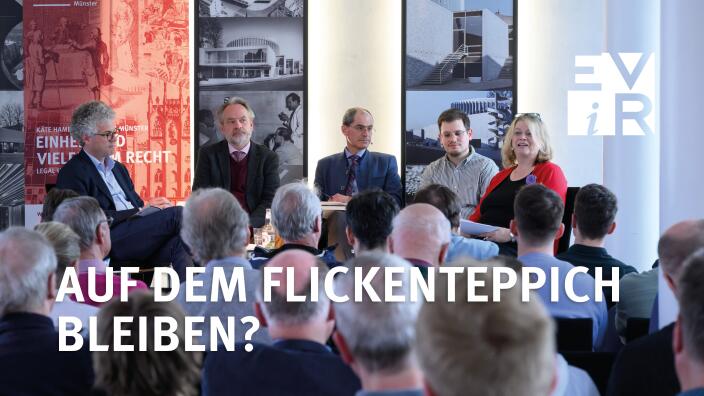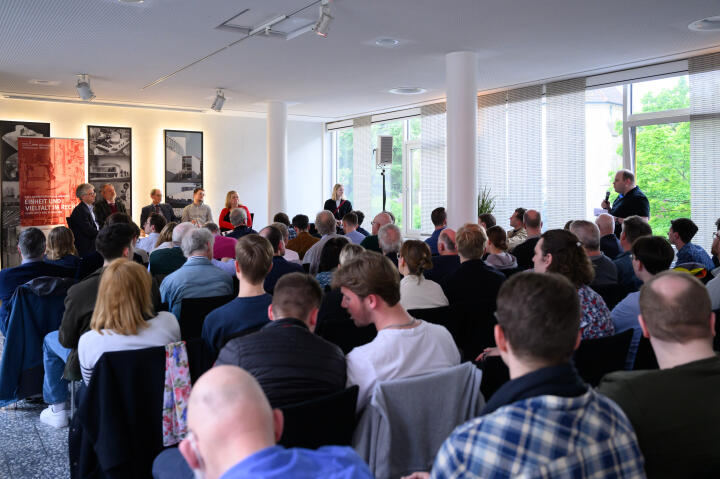German federalism: successful, yet in need of reform
Panel discussion on the achievements and limitations of the federal system

Where does German federalism come from and has it become obsolete? Representatives from academia, politics and journalism discussed this topic on Monday (29 April) at the invitation of the Käte Hamburger Kolleg "Legal Unity and Pluralism" (EViR) at the University of Münster.
Federalism is a hot topic - this was demonstrated not least by the great interest in the discussion evening at Münster's "Theatertreff": around 80 interested people came to hear the experts' views and join in the discussion themselves.
Historical roots
When the Federal Republic of Germany was founded in 1949, there were many good reasons to introduce a system comprising the federal government and the federal states, said Dr Antonios Souris, political scientist at the Free University of Berlin, at the beginning of the event. Not least, this effectively prevents an excessive centralisation of power.
In addition, the long federal tradition of German history has been formative, as the Münster legal historian Prof Dr Peter Oestmann explained. The medieval feudal system and the comparatively weakly developed royal authority had led to the expansion of many territorial states under the umbrella of the Holy Roman Empire. According to Prof Dr Jürgen Overhoff, educational historian at the University of Münster, this successful model also served as an example for Enlightenment philosophers such as Montesquieu and the American founding fathers in the 18th century.
Talk of a patchwork quilt is a "Prussian reflex"
After discussing the historical background, Dr Stefan Nacke (CDU) reported on his time as a member of the North Rhine-Westphalian state parliament. "Although I gave a lot of speeches, I had hardly any power," Nacke said. From the perspective of the state parliaments, federalism is a major challenge, as only the state governments are represented in the Federal Council (Bundesrat). Yet he remained a convinced federalist, because the formation of political opinions should also take place at regional level.
On this he agreed with the other panellists, who emphasised further advantages of federalism. Above all, it enables competition between countries for the best political solution, Overhoff said. This had been demonstrated not least during the pandemic. He described the pejorative talk of the "patchwork quilt" of 16 different coronavirus protection ordinances as a "Prussian reflex": the term only emerged in the 19th century when Prussian historians tried to discredit the Holy Roman Empire. The cost argument put forward by presenter Gigi Deppe (ARD) did not work either: compared to other state expenditure, the few hundred members of parliament hardly mattered, said Oestmann.
New federalism reform needed
Souris, who has researched voting behaviour in the Bundesrat, was critical. Controversial party-political issues in particular, such as the introduction of a speed limit, could easily be blocked by individual states. Nacke, who has been a member of the Bundestag since 2021, argued in favour of a new federalism reform. What is needed, according to him, is a public debate on the competences of the various levels. Overhoff agreed: "Federalism must keep changing. We have not yet found the final formula."
Watch the recording of the event:

To play the video, it will be loaded from a Webserver of Google™ LLC. Therefore data will be transmitted to Google™ LLC.
Panel discussion "Auf dem Flickenteppich bleiben?"










